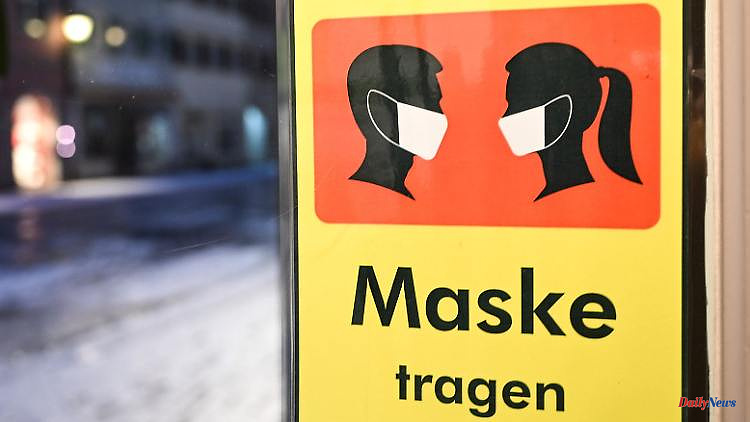Germany should be better prepared for the Corona winter, says Health Minister Lauterbach. Now it is also clear which measures the new Infection Protection Act provides for. Only a few regulations should apply nationwide, but the states can turn the screw.
To prepare for a corona wave in autumn, the federal government is planning “a multi-stage, situation-related protection concept”. For this purpose, the Federal Ministry of Health and the Federal Ministry of Justice have developed a further development of the Infection Protection Act, as can be seen from a communication from both departments, which is available to ntv. The cabinet wants to pass the new Infection Protection Act in August.
According to the plans, “certain area-specific protective measures should apply nationwide” between the beginning of October and the beginning of April. In addition, according to the law, the federal states can order certain additional protective measures "to the extent necessary to ensure the functionality of the health system or other critical infrastructure and to maintain regulated school lessons in attendance". In this case, the protective measures are decided by the state parliaments and can be further tightened in the event of specific dangers.
"Germany should be better prepared for the next Corona winter than in previous years," said Federal Minister of Health Karl Lauterbach from the SPD. With the step-by-step model, the federal and state governments would be given legally secure tools for pandemic prevention. Lauterbach named a vaccination campaign with new vaccines, the pandemic radar with up-to-date data, test and treatment concepts and protection concepts for nursing homes as further parts of the Corona autumn strategy.
"We continue to take the pandemic seriously. And above all, we take fundamental rights seriously," said Justice Minister Marco Buschmann from the FDP. There should only be restrictions on freedom if they are necessary. "Our concept therefore rejects lockdowns and curfews. Instead, we rely on measures that are effective and reasonable at the same time."
According to the announcement from October 1, 2022 to April 7, 2023, a mask requirement in air and long-distance public transport should apply nationwide. A mask and test obligation applies to access to hospitals and care facilities as well as to employees in outpatient care services. Freshly vaccinated and recovered people are exempt from the test requirement. The same applies to "persons who are treated, looked after or cared for in the respective facilities or by the respective service providers".
In addition, countries can adopt stricter measures if the infection situation requires it. This includes a mask requirement in publicly accessible indoor areas. However, there should be exceptions for those who have been tested and those who have recovered for leisure, cultural and sporting events as well as in gastronomic facilities such as restaurants. Special rules also apply to fully vaccinated people whose last vaccination was no more than three months ago. Furthermore, the federal states can introduce testing and mask requirements in certain areas, such as accommodation for asylum seekers, prisons and schools and day-care centers.
In the event of a specific threat to the work of the health system or the critical infrastructure, the countries have further measures at their disposal. This includes the obligation to wear masks at outdoor events and at events in publicly accessible indoor areas. In addition, hygiene concepts can be prescribed for companies, shops and events. The already known minimum distance of 1.5 meters in public spaces and upper limits for people at events could then become mandatory.












